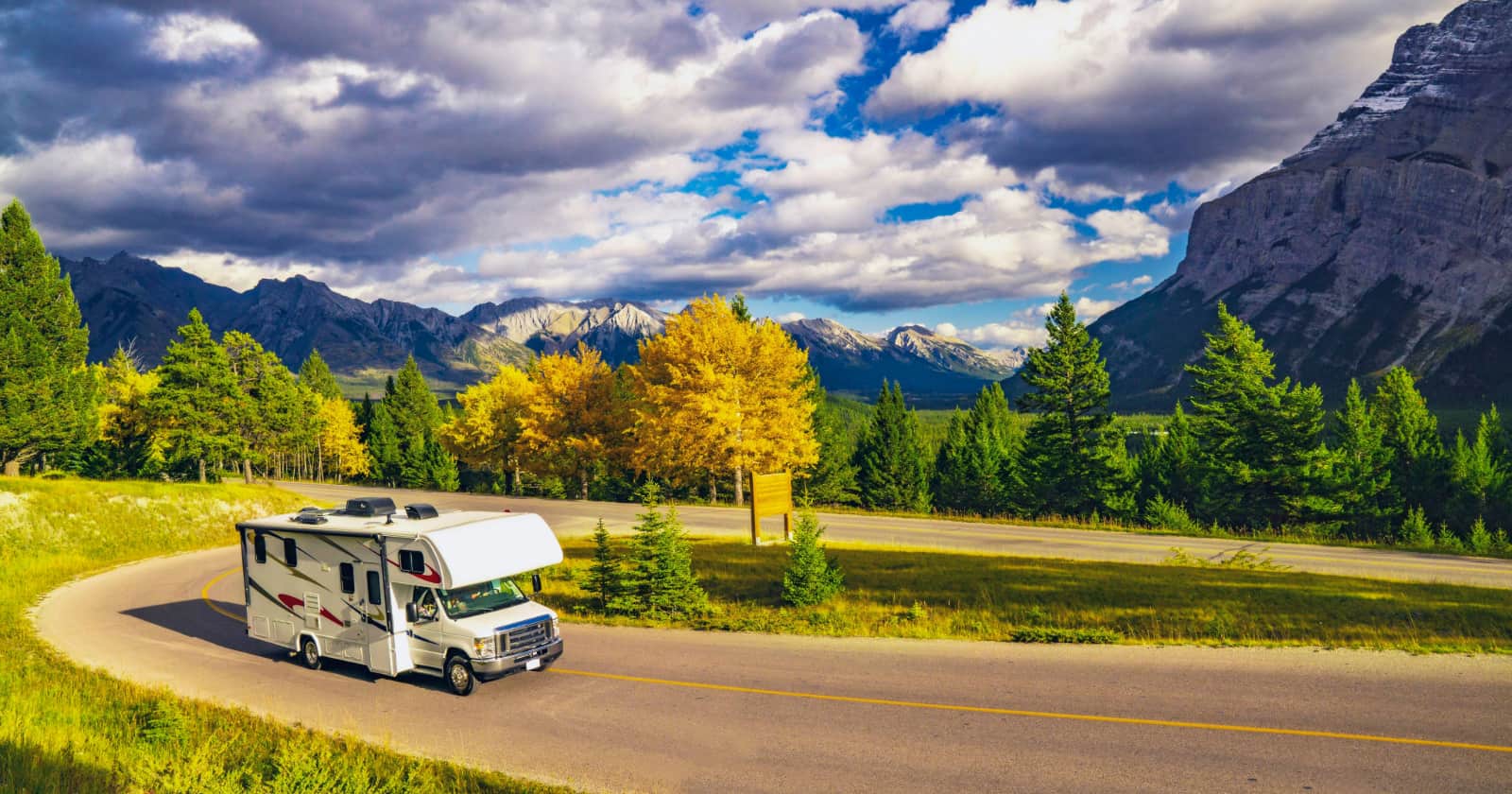Fixed Solar Panels vs Portable Solar Panels: What’s Best For You?
RV solar power is becoming increasingly common, and most new models at least provide some type of solar-friendly setup. This type of power is popular because it allows you to recharge your battery, even when you’re camping somewhere that doesn’t have electrical hookups. It’s perfect for boondockers and those who want to reduce their carbon footprint.
But if you want to add solar panels to your RV equipment, you’ll need to choose between several different types. One major choice is whether you should opt for permanent rooftop panels or a portable setup that can be easily moved and rearranged. Both options that their pros and cons, so you’ll need to carefully compare them before you make your choice.
Let’s take a deep dive into the world of RV solar power. Both hard-mounted and portable setups have been effective for campers, and the technology continues to become more powerful and efficient. You’ll get decent performance from both. But depending on your needs and preferences, one option may be better for your situation. Let’s take a closer look!
Hard-mounted solar panels
This type of RV solar power is exactly what it sounds like. They are permanent panels that are attached to the roof of your RV. The panels may be rigid or flexible (depending on your preference), but they generally remain locked in place once they’ve been installed.
Pros:
Permanent installation
One of the best parts of these panels is the convenience factor. Once they have been installed, you rarely have to think about them again. They’ll continue to passively power your RV, and you won’t need to deal with setting them up or taking them down at your various campsites.
Can charge while you drive
Another great benefit to these panels is that they can continue to operate while you drive your RV. As long as they’re exposed to sunlight and the battery/inverter is active, they will be able to charge up. This helps you maintain a constant flow of power and gives you a nice supply to dip into if the weather is cloudy/rainy.
Doesn’t take up space in your campsite
Because these panels are mounted on the roof of your RV, they won’t take up any space inside your vehicle or in the campground. You’ll be free to make the most of your space without accounting for bulky panels that need to be set up separately. In fact, you’ll often forget that the panels are even there because they have such a low-profile design.
Safe from theft
Finally, hard-mounted panels are also easier to protect because they are so far off the ground. Portable systems are easy to kick over or accidentally damage. The closer they are to the ground, the less safe they are. It’s also possible that other people might try to steal the portable solar panels if you leave them lying around. But if the panels are on the roof of your RV and are permanently attached, it’s not worth the effort to try to steal them.
Cons:
Must be properly installed
One drawback of hard-mounted panels is that they must be properly installed. These attach directly to your roof, so they permanently change your RV. This can be good or bad, but it can be a pain if you decide to remove them later on. The installation fee also adds to the overall cost of this RV solar power system, so it’s more expensive than the alternative.
Size is limited
Because these panels are mounted on the roof, you only have a limited amount of space to work with. This can be a problem for particularly small RVs because the panels are often not big enough to power all the necessary features. You won’t really have the option to expand the number of panels either.
Can be limited by your parking spot
If you have hard-mounted panels, you’ll also need to be very thoughtful about where you set up camp. Parking in shady spots may be more comfortable but you won’t be able to charge and power your vehicle in this situation. You’ll need to do more campground research in order to find spots that are compatible with your solar panels.
Difficult to readjust
The solar panels are also fixed in place once they’re been installed. You won’t really be able to rotate or adjust them, unless you want to move your entire RV. Generally, they can charge up just fine in the flat position, but they may not be as efficient as models that can be adjusted to better absorb sunlight.
Portable solar panels
Portable solar panels can be set up away from your RV and are easy to attach and detach. They come in a variety of shapes, sizes, and designs, but there are plenty of models that work well for RV usage.
Pros:
Can move them throughout the day for optimal charging
One of the best parts of portable panels is their portability. These do not need to stay fixed in a single location, so you can find the spot with the best sunlight coverage and rotate/move them throughout the day. That way you can fully take advantage of the power of the sun.
Wider range of parking spots
Speaking of the setup, portable panels allow you to park in a wider range of campsites. Your RV itself can stay in the shade, while you position the panels in a nice sunny spot. You can get all the benefits with none of the drawbacks.
Cheaper and doesn’t require installation
These panels are a great choice for those who want to dip their toes into RV solar power but don’t want to make a full commitment. They tend to be cheaper than their hard-mounted counterparts, and they don’t require any installation or special setup. You’ll save money with this type.
Add or remove panels as you see fit
Portable panels also come in a wide range of sizes. You can create an array that’s as large or small as you want, which is something you can’t really do with a roof-mounted setup. If you want to power your RV solely with solar energy, you may need to use a lot of panels. But the option is available to you, so it’s a nice perk.
Can be used for other purposes
RV roof panels connect directly to the electrical wiring/vehicle battery. This creates a nice seamless system, but it also means that the solar power cannot be used for anything outside of the vehicle. If you want to supplement your home/apartment’s electricity usage, portable panels are a nice solution! They’re more versatile and can be used to power things apart from RVs.
Cons:
Requires setup and takedown
One of the major drawbacks of a portable system is the time it takes to set everything up and take it down. Generally, the process is relatively quick, but you’ll still need to devote some time to this task. If you need to pack up in a hurry, it can be a real hassle to break camp when this is on your to-do list.
Bulky to transport
The panels are also relatively bulky, and you’ll need to find a place to keep them when you travel. Rooftop panels just sit on top of your vehicle where they’re out of sight and out of mind! But the panels can take up a lot of room, especially if you use a large rig.
Cannot charge while you travel
Because you need to pack them away while you drive, they will be inoperable during this period. Unlike rooftop panels, they cannot charge up when your RV is in motion. This means that it takes longer for them to fully power your vehicle.
More likely to be damaged or stolen
Finally, portable panels are at a higher risk compared to their hard-mounted counterparts. These are often loose and exposed on the ground. They can easily be damaged by children, pets, or any items that might blow around in the breeze. Thieves will also see these as an easier target, and there’s a chance that your portable setup will be stolen if you are not at your campsite.
See what other RVers are saying
Both hard-mounted and portable solar panels can offer plenty of benefits to campers. But they also come with their own problems and complications.
In general, hard-mounted panels are better for full-time RVers and those who want to boondock. Portable systems are preferable for shorter trips and are great for those who want to test out RV solar power before committing to a permanent system.
One of the best parts about RVing is engaging with the community of traveling enthusiasts. iRV2 forums allow folks to chat with other RVers online, and get other perspectives on everything RVing, including products, destinations, RV mods, and more.
Related articles:




In the video, the presenter noted the issue of having to patch holes in the trailer roof when he had to remove a failed panel and then create new holes to securely mount the replacement panel. I’m wondering if anyone has ever developed a rail system where the rails could be permanently fastened to the roof, and all external elements (solar panels, antennas, etc.) could be fastened to the rails and easily removed without having to create new penetrations through the roof?
Why not some of each? Install enough permanent panels to suit but then also allow for attachment of even one portable panel. If your rig ends up in the shade you might be able to get the portable panel to supply enough charge to cover reduced battery usage.
I have both, as shade on the site may affect the roof panels production, but the risk of theft is always a concern so I use a bike cable lock to reduce the risk. I have never seen or heard of theft in parks, boon-docking may be a higher risk.
Charging while driving is not a benefit as your vehicle is already charging the house batteries while your pigtail is connected to the trailer.
We have the option to open up one or two of our portable solar panels across the bed of the truck and have them charge while we are driving. Easy to tie them down if necessary. We carry a portable charging 1200 Watt station by Geneverse on the floor of our back seat and have the panels plugged into it through the truck’s rear window to recharge the Geneverse while driving between campsites. This can be useful if we can’t fully charge the Geneverse at the campsite before we leave.
We’re like JJ. Our rig came with a roof mounted panel. We took our other one off our old trailer and it is now portable. Although it is large and a bit difficult to travel with, we can park in the shade and still have power. That makes it totally worth it. Plus is increasing the power going into the rig on cloudy days.
A single 100 watt solar panel may only produce around 5 amps (see the sticker on the back of the panel) and that might be enough to recharge a single 12 volt battery but if you’re using 2 batteries then 100 watts is probably not enough.
Also, solar charge controllers are rated in volts and amps as stated on their front panels. So if you’re connecting them in series, add the volts of each panel. If connecting them in parallel add the amps of each panel to make sure you don’t exceed the volts or amps of the charge controller’s limits.
Most portable panels include a built-in charge controller.
Hard install:
Pro_ its a fixed install, no dicking around once installed.
Large arrays possible
It helps unload the alternator, making slightly more HP available for driving.
It can keep batteries charged when not in use with very little risk
It can protect your roof from impacts such as hail
Cons: Parking under trees can shade and lower performance, access
Portable Solar:
Pro: Can move solar out of shadows if enough wire available
Cons: Storage, for collectors and wires, and
The time it takes to set up/take down and store safely
Connecting wires that flex to install have limited life expectancy before replacement
Limited kW size options
Weight if you are old like me
As JJ mentioned, a combination of mounted and portable solar panels is what we went for and have been very happy with that setup. We like to park our trailer in the shade when possible; in those cases the portable panels come in very handy. Portable panels also come in very handy to supply supplemental power when skies are overcast. When shade is not available and we have good sun the panels on the roof are sufficient to recharge our batteries to full capacity without having to set the portable panels out.
If you hard mount solar panels on your rv, then you better hope you never have a fire. Fire companies hate hate solar panels permanently mounted on houses or rv’s. They generate electricity with any light that hits them.
One thing that was not addressed was a combination of fixed and portable solar panels. We have panels permanent mounted panels that are good for charging our batteries as we travel and portable ones when we setup at a campsite that is without shore power.
I choose portable solar suitcase.
I try to park our tt in the shade.
The portable solar is very easy to set up and folds up nicely in its suitcase for quick take down.
With the portable solar set up we can point it towards the sun in the sun and move it quite easy.